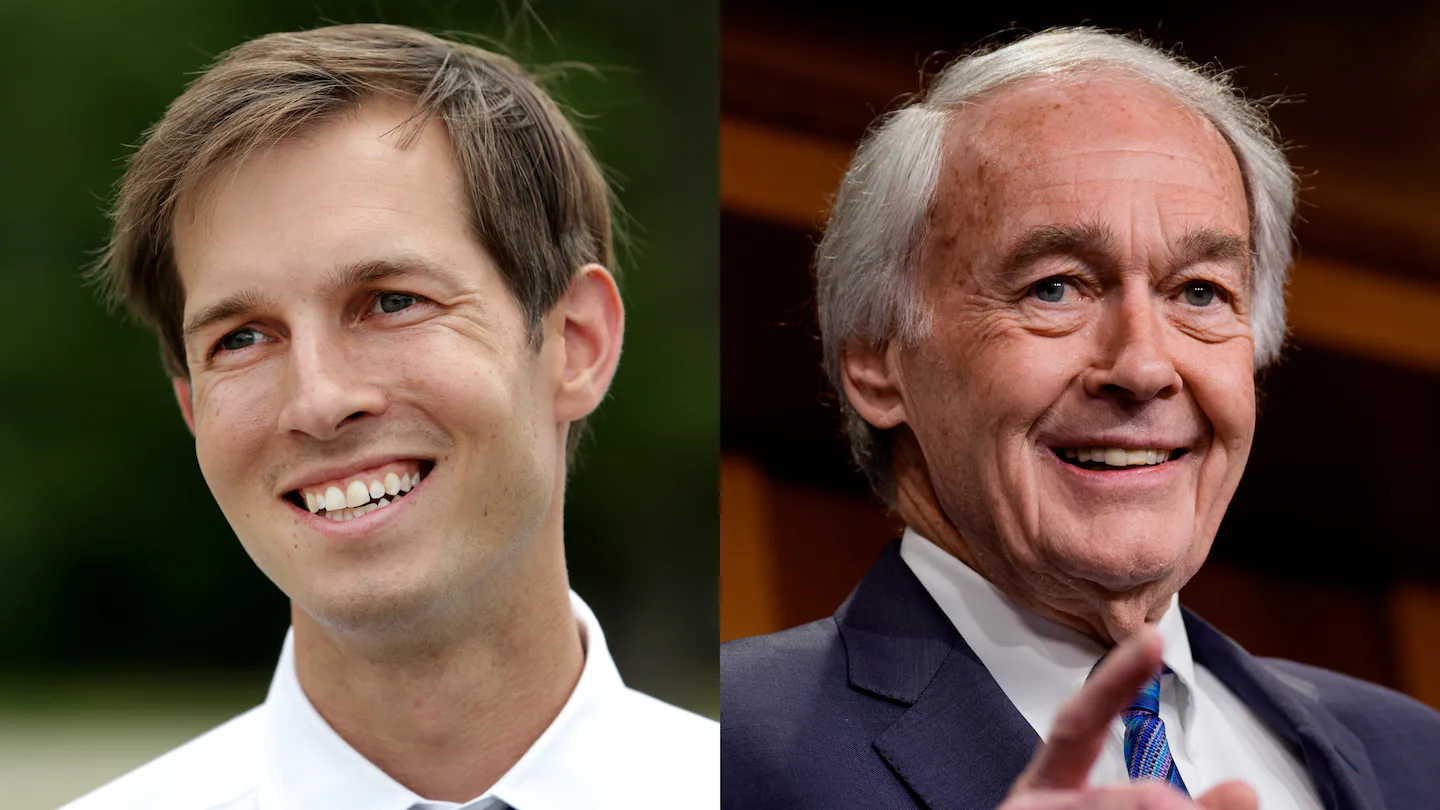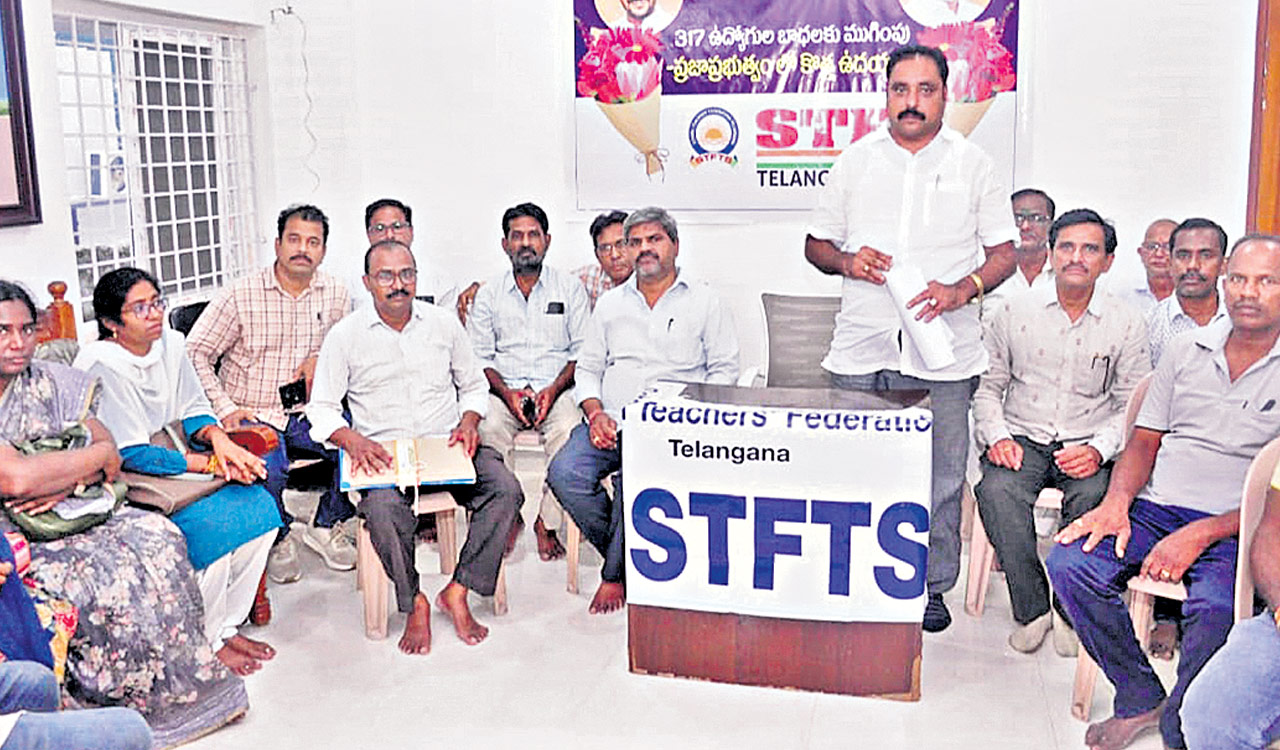
The 79-year old Markey, who was first elected to the US House in 1976, is running for a third US Senate term in a moment of generational reckoning for the party. Democratic voters are increasingly hungry for new and younger faces in elected office and many senior lawmakers are facing their own primary challenges in 2026.
Though other Massachusetts Democrats could still enter the Senate primary before next year’s deadline, Auchincloss’s decision means a potentially formidable challenger with a strong fund-raising network will remain on the sidelines. Indeed, Markey’s team appeared attentive to the threat: the first slate of endorsements they rolled out, after that of Senator Elizabeth Warren, all came from Auchincloss’s congressional district.
In an interview with the Globe, Markey said he’s focused on retaking the Senate majority for Democrats in 2026. “I know Congressman Auchincloss is committed to doing the same, to take back the House of Representatives in 2026 for the Democrats,” he said. “He’s a great partner, and I know he’s fully committed to this effort.”
Markey also insisted there was no message behind his campaign’s early rollout of Fourth District endorsements. “It was just the first of the nine congressional districts with the intent of having all nine be out there,” he said.
Speaking to the Globe, Auchincloss declined to endorse Markey’s reelection campaign at this stage. “We’re more than a year out,” he said. (If Markey were to withdraw from the race at any point, Auchincloss said he would consider running.)
The 37-year-old also declined to discuss whether Markey should be seeking reelection, given the country’s souring views on its aging political leaders.
“I’m not running against him, so I’m not going to cast stones against him,” Auchincloss said. “It’s not how I can be most productive. Where I can be most productive is not in prosecuting a case against someone — it is in making the case for what we as a party are for.
“That’s the decision I made when I decided not to do the Senate,” he continued. “I can be more impactful on building out the ideas as a platform for the party than I can engage in a campaign on personalities.”
When he announced his reelection campaign last year, Markey returned to a familiar comment in responding to arguments for generational change. “It’s not your age,” he said, “it’s the age of your ideas.”
In 2020, when Markey faced a primary challenge from a different young Democrat from Newton — former representative Joe Kennedy III — voters were receptive to that argument and approved his bid for another term. Ahead of 2026, however, some former Markey supporters have expressed discomfort with the prospect of him running for a Senate term that would end when he is 86 years old.
But Markey told the Globe that “this is the most energized I’ve ever been,” motivated by what he called the Trump administration’s attack on Massachusetts and the country. “Donald Trump is bringing out the Malden in me every single day,” he said, invoking his hometown.
In passing on a challenge to Markey in favor of leading Majority Democrats, Auchincloss is embracing a different, but no less contentious, competition: the one to define the future of the Democratic Party.
At the moment, that contest is wide-open. Nearly a year after President Trump and Republicans’ 2024 election victories, Democrats are still soul-searching and debating over how to rebuild their brand and appeal to voters they have lost. Even amid harsh backlash to the Trump administration’s sweeping government and public services cuts, as well as the president’s scattershot economic agenda, public opinion surveys still show Democrats registering some of their worst approval ratings ever.
Majority Democrats is just one of several initiatives, from Senator Bernie Sanders’ left-wing populist “Fight Oligarchy” rally tour to a liberal effort to create a “Project 2025” equivalent, that have emerged to respond to what many in the party see as an existential crisis. Some of the varying diagnoses for what ails Democrats focus on policy, others on process, but in any case, the chorus of voices claiming to point the way forward for the party is currently noisy and crowded.
Launched in July, Majority Democrats consists of over 30 elected officials at the federal and state levels, including some considered to be rising national stars or even potential 2028 presidential candidates, including Senators Elissa Slotkin of Michigan and Ruben Gallego of Arizona, who both won their seats last year even as Trump carried their states.
From New England, Representative Jared Golden of Maine, who has won his Trump-leaning district four times, is a Majority Democrats member. So is Representative Maggie Goodlander of New Hampshire, who was first elected last year.
The members share not a rigid set of ideological commitments but a sense that Democrats can only win again by challenging their own longstanding conventions and focusing intently on addressing voters’ concerns about the cost of housing and health care.
“I think of the vibe of it as like a patriotic, productive populism, where it is willing to be disruptive to the status quo, but offering workable solutions, rather than empty answers,” Auchincloss said. That means crafting not an aggressively antibusiness message but one that targets practices that are particularly harmful in peoples’ lives — like big tech platform algorithms or high pharmaceutical drug prices, he explained.
As chairman, Auchincloss is overseeing the group’s first efforts to develop a platform, raise money, recruit candidates to run in competitive seats, and influence the national Democratic conversation. He told the Globe that channeling resources to worthy candidates is a priority but argued that Democrats don’t lack money — they’re lacking ideas and effective ways to communicate them to the public. He wants his group to be a vehicle for Democrats to “take more risks and experiment more” with new forms of communication.
Success in the near term, Auchincloss said, would mean that in the 2028 presidential primary campaign environment, engaged voters and reporters would know “what it meant to be a Majority Democrat.”
“If I came and said, ‘I’m running on the Majority Democrat platform, I’m a Majority Dem’ — if that’s a relevant statement, that’s a success for our faction,” he said. “We have to make that a relevant statement.”



